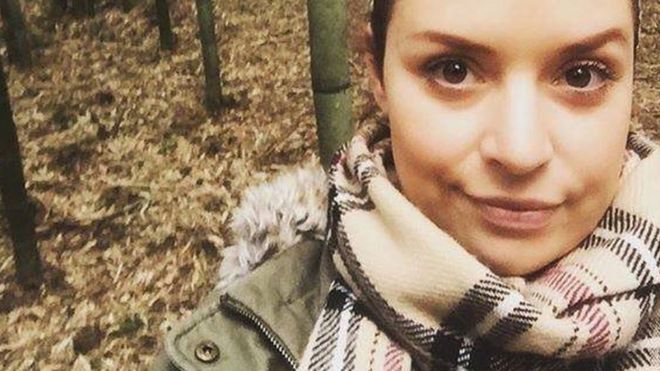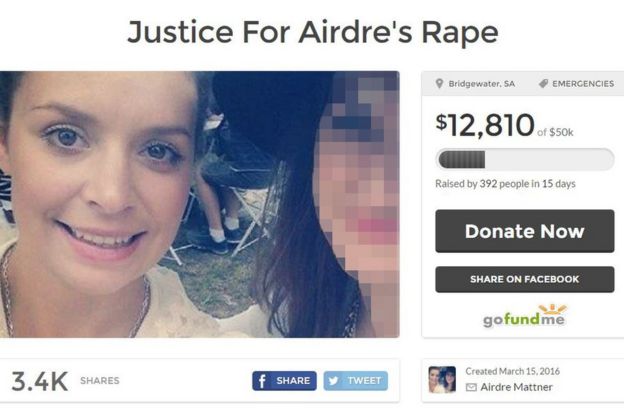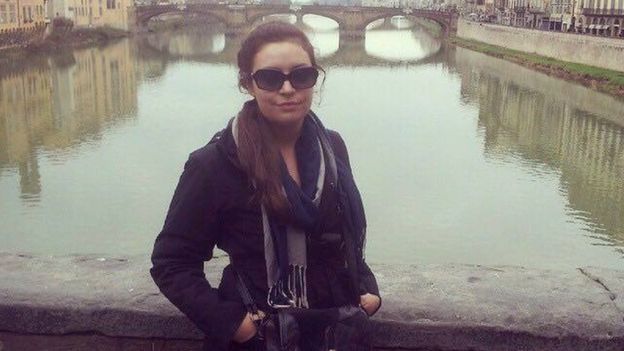- 5 hours ago
- Australia
-
(호주) 서울에서 밤에 강제로 약물복용 후 강간 당했다고 주장하는 호주 여성국제문제/오세아니아 2016. 4. 1. 19:51
출처: http://www.bbc.com/news/world-australia-35931431
Public battle over S Korea rape claim
 Airdre Mattner
Airdre MattnerAustralian teacher Airdre Mattner says she was drugged and raped after her drink was spiked in Seoul An Australian woman who was allegedly drugged and raped during a night out in Seoul is now involved in a public battle with South Korean police.
Airdre Mattner, who waived her right to anonymity, says she was attacked after an organised pub crawl last September. (waive: 포기하다) (right to anonymity: 익명성의 권리) (pub crawl: 술집순례, 여러 술집을 돌아다니며 술마시기)
She says police were dismissive and did not perform essential tests. She is now raising funds for further legal action. (dismissive: 무시하는, 묵살하는)
Police in Seoul defended their actions, rejecting her story as one-sided".
The officer in charge of the investigation made the comments directly to South Korean media. Ms Mattner said the information provided to reporters differed from what she had previously been told.
Ms Mattner said she attended a hospital with an attached police unit that specialised in sexual violence cases on the day after the alleged incident.
She felt officers from Seoul Metropolitan Police's Yongsan Police Station placed undue emphasis on the amount of alcohol she had consumed. She said they also emphasised that she had gone out alone, despite the fact that the pub crawl was an organised event.
Ms Mattner said she had only consumed three drinks and was not drunk when she started feeling strange. She believes her drink was spiked.
She said she had a recollection of travelling in a taxi with a man and woke up naked in a hotel room.
 Airdre Mattner
Airdre MattnerA screen shot from Ms Mattner's fund raising page where almost A$13,000 has been donated so far Procedures 'not followed'
After the attack the man, who Ms Mattner believed was responsible, tried to add her as a friend on Facebook.
Ms Mattner said she forwarded the man's photograph to police, but was told he was not a suspect as records showed he was not in South Korea at the time.
Upon returning to her home in Japan, where she works as an English teacher, Ms Mattner made multiple requests for copies of her medical records and the police interview.
Translations that were provided months later through the Australian embassy in Seoul appeared to show medical staff had not followed procedures designated in the hospital's "rape kit".
Rape kits are distributed to South Korean hospitals for use in sexual assault cases and contain medical supplies, tests and paperwork.
The documents, seen by the BBC, suggested DNA evidence was not collected and preventative medicine for sexually transmitted diseases was not administered.
Police deny wrongdoing
But the police officer who investigated the case told Korean news agency News1 any allegation police were unwilling to act on the case was false.
"The doctor at the hospital used the emergency kits to collect DNA and other evidence. It was sent it to the national forensics lab and as a result male DNA was found," he was quoted as saying.
He added that the victim was unable to remember details of the attack and that a drug test came out as negative.
A trusted friend of Ms Mattner's was present at the questioning and that meant "there cannot have been an atmosphere of intimidation", the officer reportedly said.
The report also said police had investigated the man who Ms Mattner identified, but did not believe he was the attacker, based on CCTV footage.
The BBC attempted to contact police multiple times to clarify their statement.
 Airdrie Mattner
Airdrie MattnerMs Mattner is campaigning to bring a lawsuit against her alleged attacker in Britain Negligence claims
Ms Mattner said the comments were "misleading" and had put her in danger by revealing details about her alleged attacker.
"They told me the case was closed," she said.
"They never told me they knew he was in Busan, they never told me they had been asking shopkeepers about this man, they told me he wasn't considered a suspect, they told me he wasn't in the country at the time and they did not tell me they collected my DNA evidence."
Ms Mattner described the conduct of police and medical staff since the attack as "negligent".
She is now attempting to take the matter to Britain, where she believes her alleged attacker may live, and is raising money to help cover her legal costs through the GoFundMe crowdfunding website.
South Korean police's treatment of rape victims has been a source of controversy in recent years, leading the National Police Agency to set up a special sex crimes task force.
Since the story went public, Ms Mattner said 16 other women had contacted her to share similar experiences in South Korea.
She has also received hate mail blaming the rape on her decision to go out drinking alone and accusing her of wasting police time.
Dr Wonyun Lee, who is familiar with Ms Mattner's case, told the BBC that reporting of rape remains a problem for many women, with non-Korean victims facing additional difficulties.
Dr Lee, who has worked on anti-rape campaigns, said this was partly due to a "problematic" cultural attitude towards victims where only violent rapes were recognised.
South Korea is not the only country dealing with this issue. The World Health Organization estimates that 35% of the world's female population has experienced some kind of sexual violence.
'국제문제 > 오세아니아' 카테고리의 다른 글
(호주) 비인간적 대우로 사망한 호주 원주민 여성에 관한 사인규명 요구 (0) 2016.12.17 (호주) 호주는 땅덩이가 광대한 만큼 선거 진행도 어려움이 많다 (0) 2016.07.02 (뉴질랜드) 뉴질랜드 새로운 국기 디자인 공모 결과 나왔으나 없던 일로 하기로 (0) 2016.03.28 (호주) 호주 원주민 10세 소녀 자살 소식에 호주사회 충격 먹다 (0) 2016.03.11 (호주) 훈련 중 속도를 낸 호주 전함 뉴질랜드 불쾌하게 만들다 (0) 2016.03.04